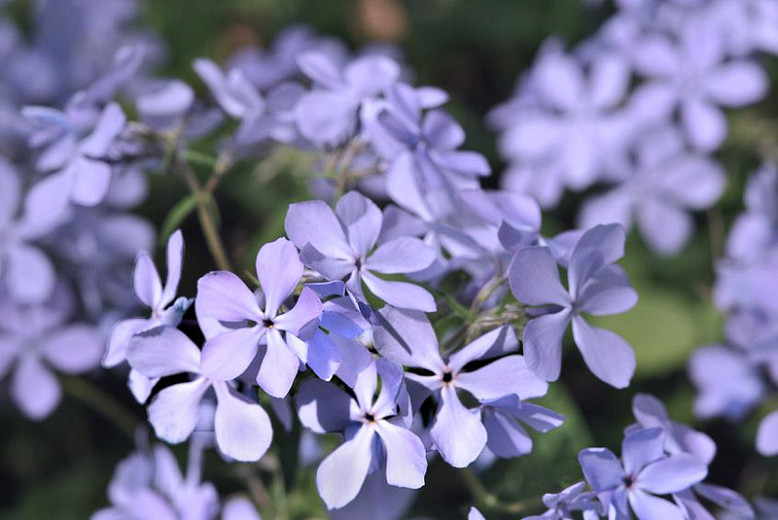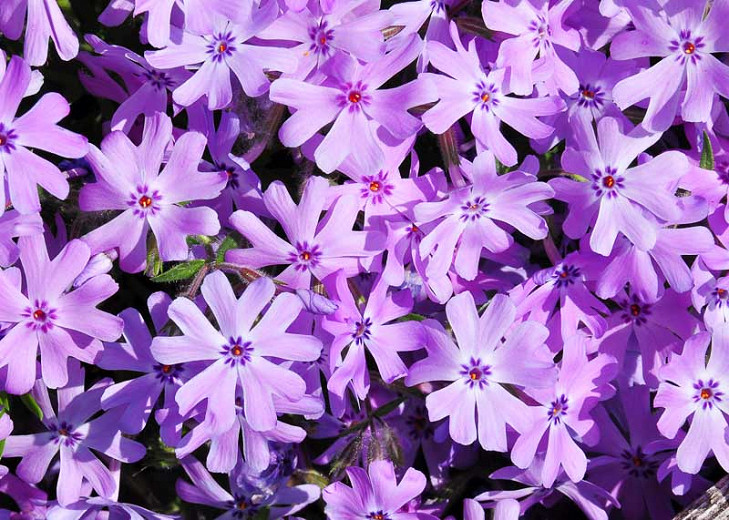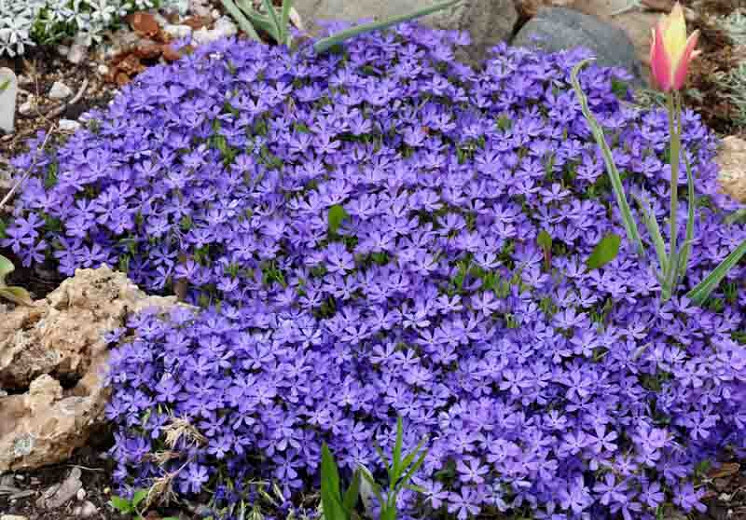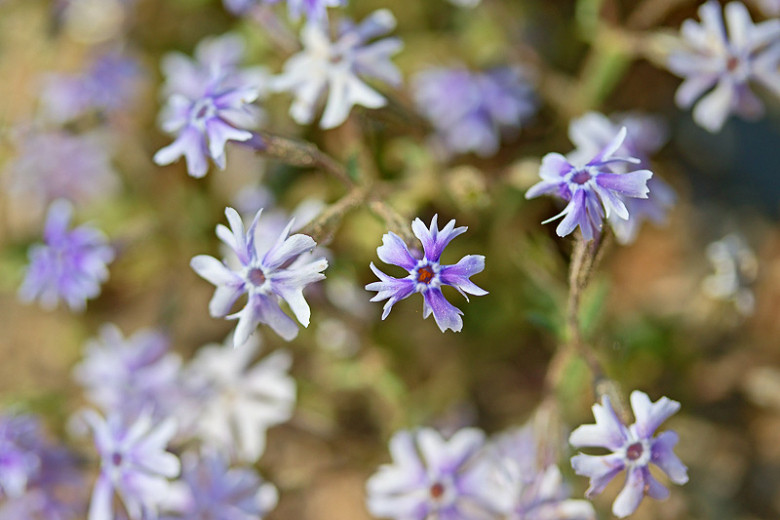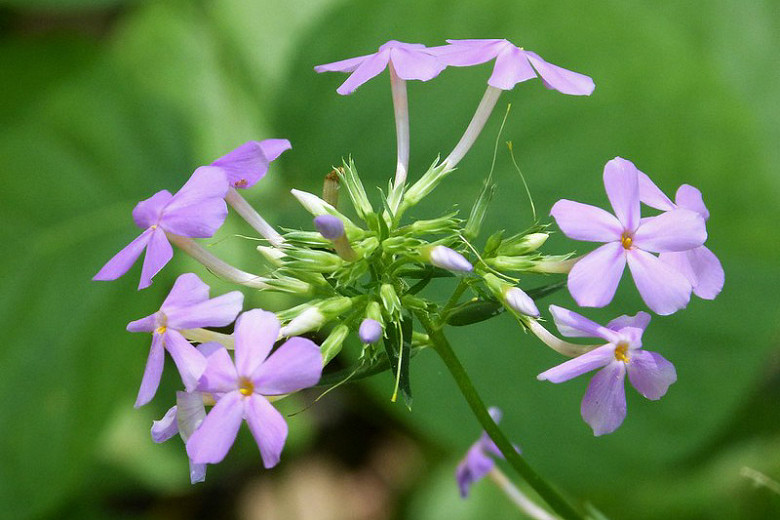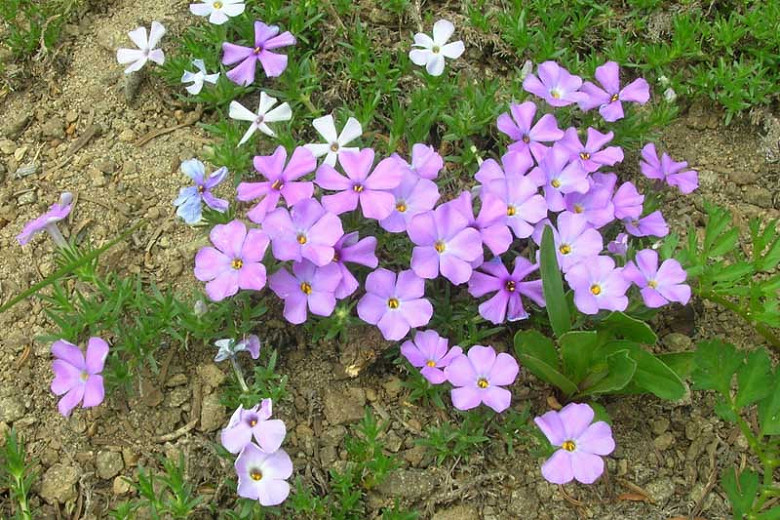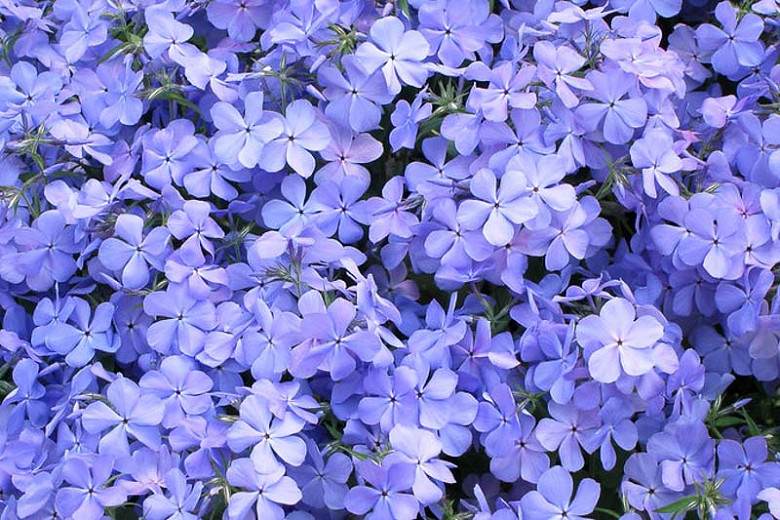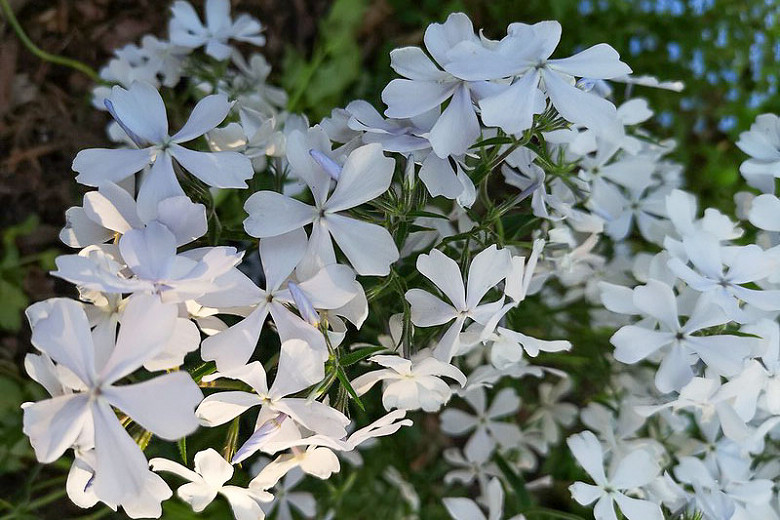Phlox divaricata (Woodland Phlox)
Native to eastern North America, Phlox divaricata (Woodland Phlox) is a semi-evergreen, spreading wildflower which creates mats of abundant, open clusters of slightly fragrant flowers in mid to late spring. Each scented, saucer-shaped flower features five, flat, notched, petal-like lobes in shades of lilac, rose or blue.
Native to eastern North America, Phlox divaricata (Woodland Phlox) is a semi-evergreen, spreading wildflower which creates mats of abundant, open clusters of slightly fragrant flowers in mid to late spring. Each scented, saucer-shaped flower features five, flat, notched, petal-like lobes in shades of lilac, rose or blue. Borne at the tip of hairy and sticky stems, they rise enthusiastically above the lance-shaped foliage.
- Recipient of the prestigious Award of Garden Merit of the Royal Horticultural Society
- A creeping perennial, Phlox divaricata grows only 9-12 in. tall and wide (22-30 cm) and can form large colonies over time, creating a beautiful flower carpet.
- Prefers part shade and enjoys humusy, moist, well-drained soils. Tolerates clay soils and dry soils. This plant is drought tolerant once established.
- Excellent choice for beds and borders, rock gardens, naturalized areas, as a groundcover or underplanting shrubs and roses.
- Hardy, Phlox divaricata is deer resistant and attracts butterflies and hummingbirds.
- Watch out for powdery mildew, spider mites and rabbits. Cutting back stems after flowering helps combat mildew.
- Propagate by division in fall or spring. Propagate by basal cuttings in spring or propagate by root cuttings in early fall or winter.
- Native to eastern North America.
Requirements
| Hardiness | 3 – 8 |
|---|---|
| Heat Zones | 1 – 8 |
| Climate Zones | 1, 1A, 1B, 2, 2A, 2B, 3, 3A, 3B, 4, 5, 6, 7, 8, 9, 10, 11, 12, 13, 14, 15, 16, 17 |
| Plant Type | Perennials |
| Plant Family | Phlox |
| Exposure | Partial Sun |
| Season of Interest | Spring (Mid,Late) |
| Height | 9" – 1' (22cm – 30cm) |
| Spread | 9" – 1' (22cm – 30cm) |
| Spacing | 9″ – 12″ (22cm – 30cm) |
| Water Needs | Average |
| Maintenance | Low |
| Soil Type | Chalk, Clay, Loam, Sand |
| Soil pH | Acid, Alkaline, Neutral |
| Soil Drainage | Moist but Well-Drained, Well-Drained |
| Characteristics | Fragrant, Plant of Merit, Showy, Semi-Evergreen |
| Native Plants | United States, Midwest, Illinois, Indiana, Iowa, Kansas, Michigan, Minnesota, Missouri, Nebraska, Ohio, South Dakota, Wisconsin, Northeast, Connecticut, Delaware, Maryland, New Jersey, New York, Pennsylvania, Vermont, Southeast, Alabama, Arkansas, Florida, Georgia, Kentucky, Louisiana, Mississippi, North Carolina, South Carolina, Tennessee, Virginia, West Virginia, Southwest, Oklahoma, Texas |
| Tolerance | Clay Soil, Deer, Drought, Dry Soil |
| Attracts | Butterflies, Hummingbirds |
| Garden Uses | Beds and Borders, Ground Covers, Underplanting Roses and Shrubs |
| Garden Styles | Gravel and Rock Garden, Informal and Cottage, Prairie and Meadow |
